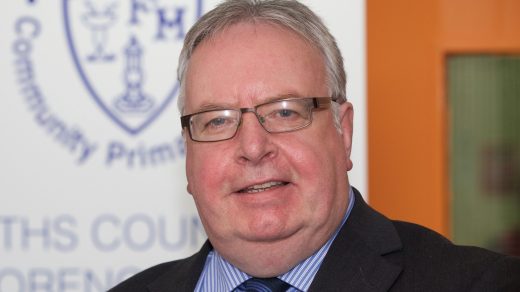Getting to grips with Governance
A governing body plays a pivotal role in the running of a school, but is there enough awareness of the true role of a school governor? And how does this impact on whether people choose to take on the role? Educate casts a spotlight on the all important voluntary position.
According to the National Governors’ Association, an independent charity representing governors across England: “School governors provide strategic leadership and accountability in schools. Governors appoint
the headteacher and are involved in the appointment of other staff. In some schools the site is owned by the governing body. It is governors who hold the main responsibility for finance in schools, and it is governors who work with the headteacher to make the tough decisions about balancing resources.”
However, as important as a governor sounds to the day to day running, many of England’s schools have governing body vacancies. In January this year it was reported that one in 10 of the country’s 300,000 governing body positions was unfilled, as school governor recruitment expert Governors for Schools (SGOSS) launched its SchoolMakers2014 campaign to raise awareness.
The organisation, originally set up by the Department for Education, said at the time: “We ran a poll last year and found that approximately 87% of people don’t know that school governors make some of the core educational decisions within our schools. We often find this lack of knowledge about the role can be the biggest barrier to finding new volunteers.”
Andy Campbell, chair of governors at Liverpool’s Springwood Heath Primary School, first became involved in the governing body at his children’s school around 17 years ago and admits that he too started out with a misunderstanding of the role.
“My children asked me if I would become a parent governor at their primary school,” says Andy. “My response to them was not at the moment. My views on parent governors at the time were that they were just there for any playground jangle.”
Having enquired instead about whether there were any Local Education Authority (LEA) roles within the school, Andy was advised that there was only a governor vacancy available. “I wanted to know more about the role and the school. Apprehensive as I was, I attended my first meeting to discover how wrong I was and how misinformed of the role of governors in schools.”
Originally becoming a governor, before opting to utilise his sales and marketing experience on the finance committee, of which he became chair, and then being voted into his current position as chair of governors, Andy now has a number of duties. They range from overseeing and delegating the workload to governors, making sure the governing body meets legal requirements in the management of the school, discussing the school and its plans with Ofsted inspectors, attending committee meetings and also attending the school to meet with the headteacher or be involved in activities.
Chris Walker, regional managing editor of Trinity Mirror North West & North Wales, will judge this year’s Educate Awards for the second year running. He is also a long-standing governor at his children’s former primary school – Great Meols Primary in Wirral – and after 16 years now holds the position of vice chair as well as chair of the curriculum committee.
During the years he has been on the governing body, Chris considers the changes in the role of governor to have been “immense”. He says: “When I first became a governor most, if not all, of the services were provided by the local authority. We now have a responsibility as to when we get them from the local authority and not, and it’s our decision in terms of where we buy them in from and we have the legal responsibility. It is much more onerous both in time and legally than it used to be.”
Chris also stresses the importance for a school to be equipped with a strong governing body, adding: “Without doubt a governing body is very much part of the leadership of the school. Obviously the head is the most important but it is a partnership, and if you have a strong governing body then that makes it easier for the head and obviously it’s likely to make the school more efficient and effective.”
A governing body is usually made up of a range of parents and local authority representatives to community members who are co-opted into the roles, but how can a school ensure it benefits from this ‘strength’ amongst its members?
Whilst suggesting that schools will “welcome anyone who has a willingness to focus on improving education for every child,” Jane Owens, who has been a governor for 25 years and is currently chair at Weatherhead High School, Egremont Primary School and Castleway Primary School in Wirral, says: “Governing bodies are encouraged to conduct a skills audit and consider any gaps in skills, knowledge or experience when appointing to vacancies to ensure we are fit for purpose and working together to carry out our functions to the best of our ability. Many employers will allow flexible working hours to allow attendance at meetings.”
Jane, who is also chair of Wirral Governors’ Forum as well as a national leader of governance, offering support to governing bodies across the North West, also believes that better awareness of governors’ roles is needed. She adds:
“Lord Nash comments that ‘volunteer does not mean amateur’ and many governors embrace the opportunity to share experiences with others at conferences, take time to read policies and documents, learn best practices from our peers and join organisations who offer advice and support. Many governors across the UK also take time to tweet, share views and offer support. We get to know our school by visiting in a structured way as well as attending those wonderful school functions. I think the crucial role we play as strategic leaders in our schools needs a higher profile nationally.”
For more information about volunteering as a school governor, visit www.sgoss.org.uk




